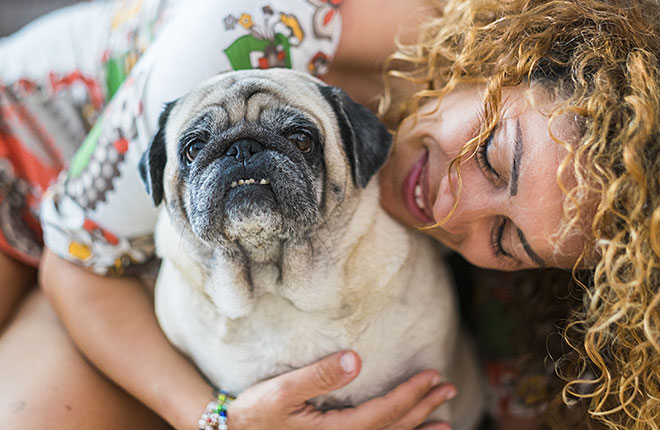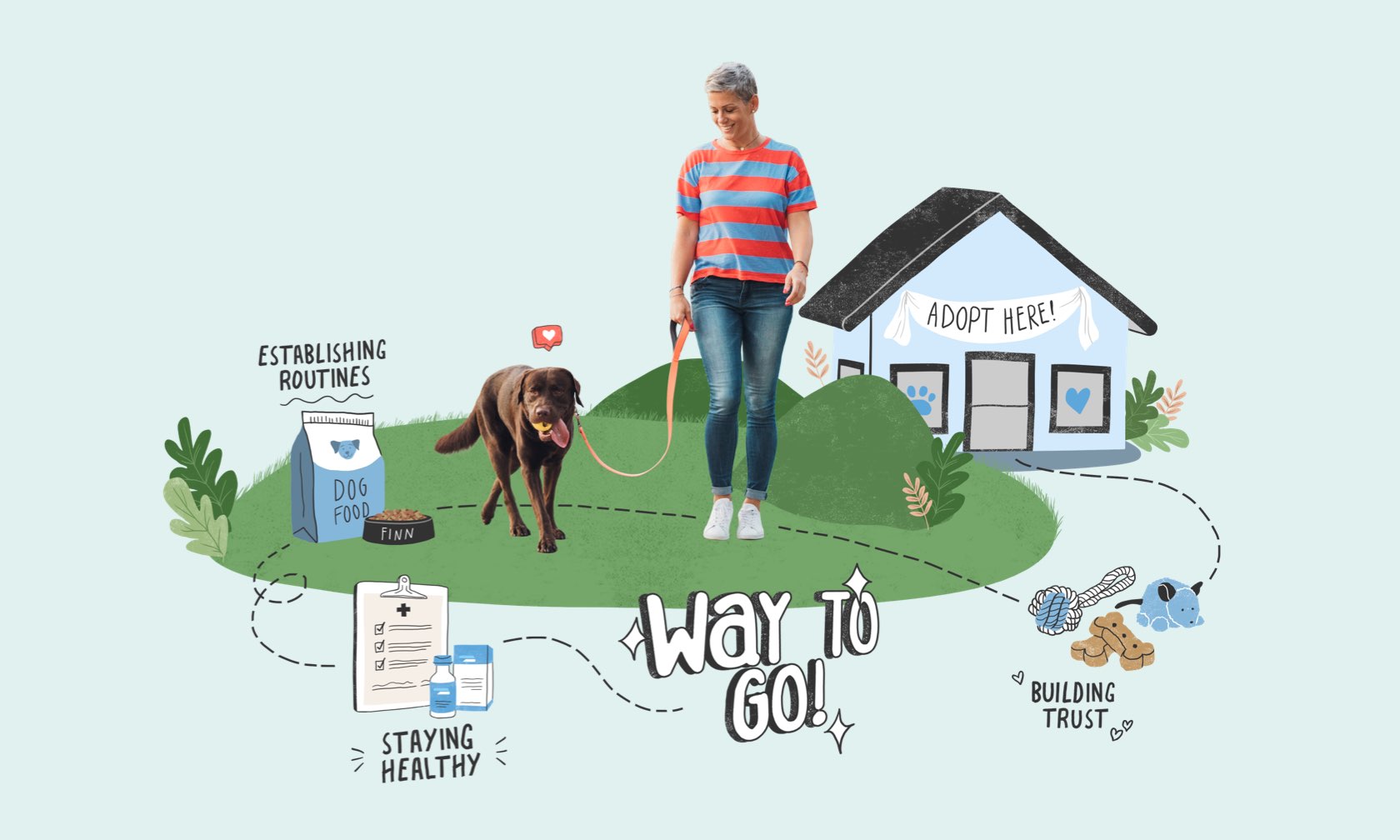When most people think of adopting a pet, their first thought is a puppy or kitten. Senior pets are often overlooked at the shelter, and they can have a difficult time adjusting to shelter life. But these “wiser” dogs and cats just might be the perfect match for your family.
Before adopting a pet, it’s best to match your lifestyle with the type of pet you get. It’s not just the breed to think about — age plays a big factor in how much training, exercise, and overall care they’ll need. Puppies and kittens aren’t right for every family, are a lot of accidents, energy, and training (especially with puppies) involved to get through the early stages of their lives.

Senior pets can be a great option — they’re easy-to-love, potty trained, and often require less exercise than their younger counterparts. And, you can teach a dog (or cat!) new tricks or train them out of behaviors you don’t like.
What Classifies a Pet as “Senior”?
Dogs and cats become seniors at different points in their lives. Cats are thought to be senior between the ages of 7 and 11, while dogs are considered senior between the ages of 7 and 9 (large breeds will become senior sooner, while small breeds become senior later).[1] While it’s not always the case, senior pets may have preexisting medical conditions. However, these are usually already diagnosed, being treated, or successfully managed, making it easier for you to anticipate what medical care your pet will need. It’s important to keep in mind that age is not a disease — older pets can be just as healthy as younger ones!
How to Adopt a Senior Pet
So, what might you expect when you adopt a senior pet? A lot of times, senior pets are fostered rather than housed at your local shelter. This is because older dogs and cats often have a harder time in the shelter environment after spending most of their lives in a comfortable home. The foster parent will likely be able to give you some real-world insight into how your prospective pet has done with other pets, children, and even a variety of sights, sounds, and objects in the home. If the dog or cat is being fostered, your local animal shelter or foster organization will need to coordinate a time for you to meet with your potential pet.
How to Care for a Senior Pet
Now that you've given a sweet senior pet a new home, it’s time to give them a great life. Did you know that only 14% of senior pets undergo regular health screenings by their veterinarian?[2] That’s a shame, since if disease or pain were caught earlier, these pets would live longer, happier lives. And in the long run, catching things earlier can save you money. Make sure to have your veterinarian run point-of-care tests such as blood chemistry, urine, and hematology tests to establish a baseline of their health and to take disease prevention measures.
When you adopt a senior pet, you’re giving them a stable, loving home to live out their years — and they’ll repay you in joy and all the couch snuggles you can handle.
ZPC-00446R2
- AAHA Senior Care Guidelines for Dogs and Cats.
- The Path to High-Quality Care: Practical Tips for Improving Compliance. Lakewood CO: Am Anim Hosp Assoc Press, 2003.



